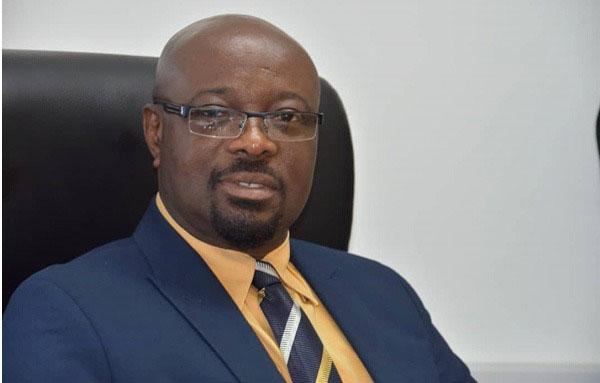Kwame Agyeman-Budu, MD, ECG
THE ELECTRICITY Company of Ghana wants tariffs to be increased by 148% for 2022 and with 7.6% average adjustments between the periods of 2023 to 2026.
The sharp proposed increment, according to ECG, is due to the gap between the actual cost recovery tariff and PURC-approved tariffs as well as the cost of completed projects.
In a similar fashion, the Ghana Water Company is also proposing an increment in its tariffs to be able to at least recover its costs.
These are contained in tariff proposals presented to the Public Utilities Regulatory Commission by the two companies.
In the report, the two utility companies raised concerns about the continuous refusal of the Public Utilities Regulatory Commission to fix tariffs in line with the cost of production.
For them, the situation has affected their operations, and it is essential that the problem is rectified.
To achieve this, the Electricity Company of Ghana is proposing a 148% increment on distribution service charge (1) for 2022, which is the rate for electricity distribution companies to recover the cost of distribution network operations.
“The financial sustainability of the Electricity Company of Ghana is important as it impacts on the entire energy sector. With the huge investment needs facing the distribution industry over the next five years, it is expected that the proposed tariff increases would inevitably be approved to sustain efficient and reliable electricity service.”
“Overall, this tariff proposal indicates a high increase (148%) in year 2022 compared with the subsequent years’ increases of an average of 7.6%. This high increase in 2022 is largely attributable to the cost of investment projects; the gap that has developed over the years between the actual cost recovery tariff and the PURC approved tariffs; the continual application of the prevailing tariff (which was a 14% reduction) beyond the stipulated regulatory period (2019-2020); and the effect of macroeconomic factors,” ECG said in its 55-page tariff proposal document forwarded to the PURC.
ECG is also proposing an increment of 28.4% in 2022 for Distribution Service Charge (2) which is the rate electricity distribution companies recover distribution losses. For this set of charges, there is a proposal for an average increment of 2% from 2023 to 2026.
On the part of the Ghana Water Company Limited, management bemoaned the failure of PURC to apply an automatic tariff adjustment formula.
The GWCL argues that while the average tariff per cubic metre in 2019 was US$1.27, same was reduced to US$1.13 as a result of cedi depreciation.
The GWCL argues that this has affected its ability to carry out repairs and replacements of aged and obsolete equipment and pipelines.
For the GWCL, the current domestic tariff of GH¢3.29 per cubic metre to consumers within o-5 cubic metres is less than what the poor in rural areas pay, which is about GH¢10.
To justify its case for the increment, the Ghana Water Company Limited says it is saddled with a monthly loan payment of US$7.93 million which is 47.15% of its average monthly revenue.
The GWCL says it has no option but to recover the loans through tariffs.
The GWCL argues that tariff increments are largely driven by exchange rate depreciation, a paradigm shift in government economic policies.
– Citibusiness


